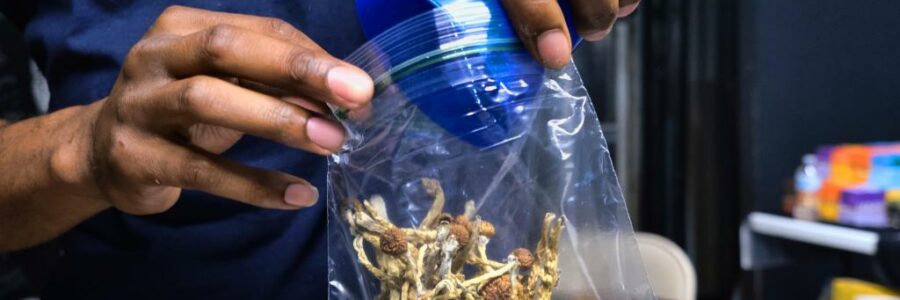
Denver may ease magic mushrooms laws further two years after decriminalization
Further easing of laws relating to psychedelic mushrooms, possibly using the drug for mental health therapy and training Denver’s first responders to better react to a psychedelic crisis are just three of several recommendations issued in a new report by the Denver Psilocybin Mushroom Policy Review Panel.
The panel that includes District Attorney Beth McCann, law enforcement officers and psilocybin advocate Kevin Matthews was formed after 2019, when Denver voters were the first in the U.S. to effectively decriminalize psychedelic mushrooms by declaring them the “lowest law-enforcement priority.”
“The panel unanimously agreed that decriminalizing psilocybin mushrooms in Denver has not since presented any significant public health or safety risk in the city,” it said in its report after a year of meeting and observing data. The report, first reported on by Westword, will be presented to a Denver City Council committee in November.
“This report to the best of our ability clearly demonstrates decriminalizing has not resulted in any significant public health or safety issues,” Matthews told The Denver Post. ” Because of that, Denver can now feel a little more comfortable with psilocybin decriminalization and really start to potentially embrace psilocybin as a therapeutic tool in addition to expanding civil liberties for personal possession.”
The report’s recommendations are as follows:
- Train City and County of Denver first responders to recognize and safely respond to people undergoing psychedelic crisis;
- Produce educational public service announcements to inform the public about safety, responsible use and available risk reduction services;
- Create a data collection reporting system for any interactions involving psilocybin for ongoing public safety monitoring;
- Make sharing and gifting of psilocybin without purchase among the lowest law enforcement priority;
- Make the communal use of psilocybin among the lowest law enforcement priority;
- Expand voting panel members to be more representative of Denver’s diversity;
- Determine how psilocybin therapy can be applied to address mental health issues in Denver.
According to data from the Denver District Attorney’s office, there have been only 47 cases related to psilocybin in Denver since decriminalization was adopted in May 2019 (compared to 44 cases in 2018 alone), the report said.
Thirty-two percent of the cases since decriminalization were dismissed by the district attorney, 6% went to sentencing, 11% have warrants issued and 51% remain open, the report said.
Eleven percent of arrests were for psilocybin or psilocin only, while the rest included additional illicit substances, the report said. Of the five arrests involving psilocybin or psilocin only, 60% were arrests for amounts greater than for personal use.
Matthews hopes to see public education campaigns about safe use of psychedelic mushrooms in the form of billboards, mailers or television advertisements, he said.
The report notes psychedelic mushrooms do not cause “physical addiction, craving, major physiological disturbances, delirium, disorientation, or amnesia” and that they are “considered the safest of all recreational drugs in terms of needing to seek emergency medical treatment and in terms of potential harms to the user and society.”
It also says the council has the chance to “put people and communities first by expanding liberties for Denver residents who wish to use psilocybin in a responsible and intentional manner.”
Seattle is the latest city to decriminalize psychedelic mushrooms, doing so this month, and joins the state of Oregon, Oakland and Santa Cruz, Calif., and Washington, D.C.
Source: Read Full Article